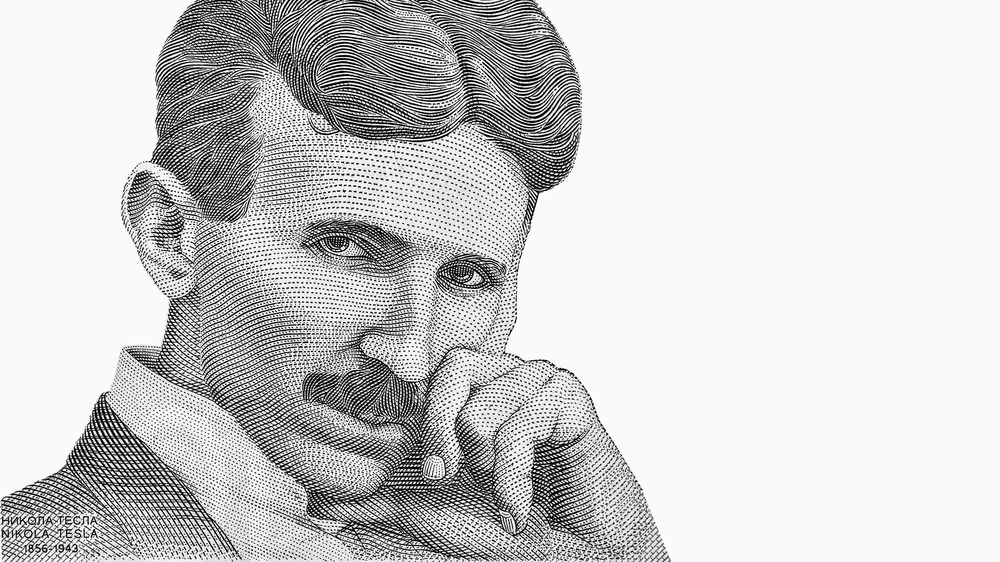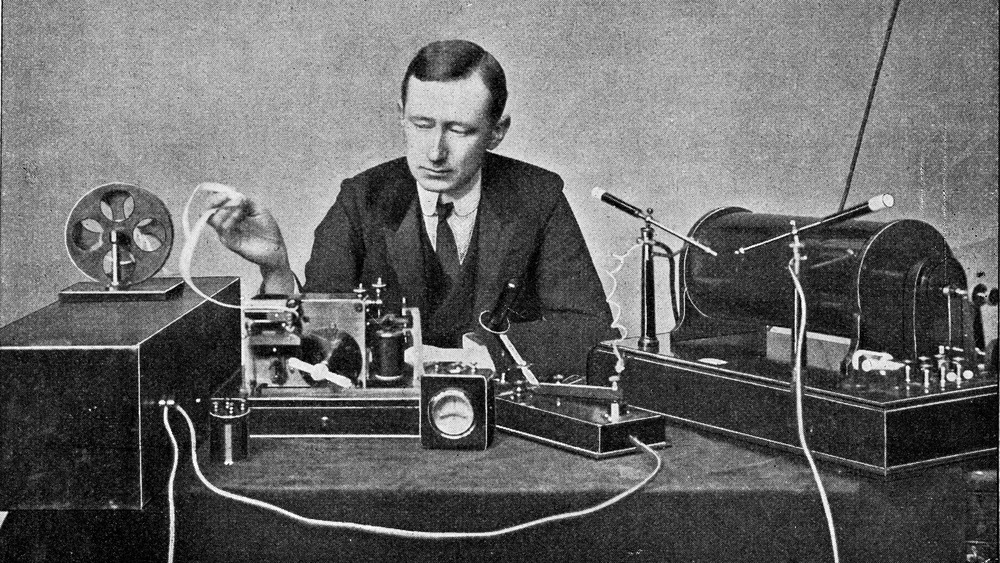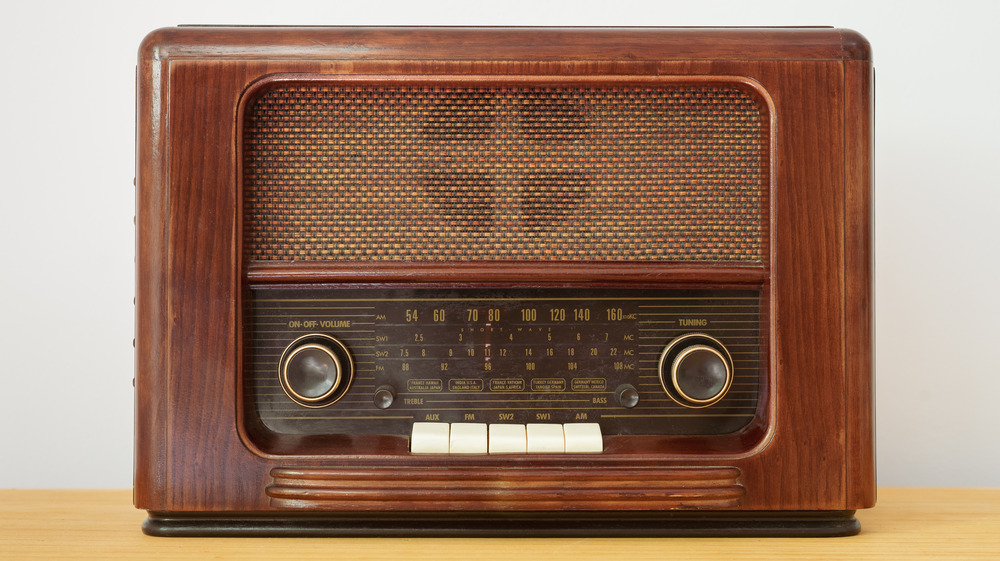This Is Who Really Invented Radio
You've heard of the space race, where America battled the Soviet Union for supremacy in space exploration, but do you know about the radio race? Italian physicist Guglielmo Marconi (1874-1937) and Serbian-American Nikola Tesla (1856-1943), an inventor and engineer, both tried to best the other in the early days of radio technology, reports How Stuff Works.
Who came out the winner is an oft-contested question. First, there is Tesla, who created several technologies — alternating-current machinery, transformers and motors — that he sold to George Westinghouse after immigrating to the United States in 1884, according to Britannica. Tesla started his own lab and experimented with lighting, electricity, and broadcast technology. He constructed the Tesla coil, also known as an induction coil, in 1891, an invention still used today in radios, TVs and other electronics to facilitate radio signal transmission and reception.
Hoping to demonstrate the potential of his new device by transmitting a signal to West Point, New York, a distance of 50 miles, Tesla found only disappointment when a fire destroyed his lab and his hopes.
Tesla and Marconi: a battle to be first
"The timing could not have been worse," according to PBS, pointing out that competitor Guglielmo Marconi was building a two-circuit wireless telegraphy system, and had gotten the first patent for such a device in England by 1896. Tesla did obtain his own radio patent, filed in 1897 and obtained by 1900. Marconi would need to apply for his own patent several times because "Tesla got to the patent office first," according to Legal Language Services, who explained that Marconi's patent applications were rebuffed "because Tesla's applications had priority and because Marconi's device used Tesla oscillators to perform."
A patent does not ensure success, though, and by 1900, the Marconi Wireless Telegraph Company did well in the stock market, generating interest in people like Thomas Edison, who started consulting for the American subsidiary as an engineer, and financier Andrew Carnegie, who became an investor. Marconi had family connections as well — his father was a wealthy landowner and his mother came from the Jameson family, of whiskey distillery fame.
Victory comes too late
By 1900, Tesla was fully invested in learning more about radio technology. Terrestrial stationary waves, the idea that the "Earth could be used as a conductor and made to resonate at a certain electrical frequency," became what Tesla thought of as his biggest achievement, according to Britannica. Much of his work that year focused on exploring this new idea. He attempted to build a broadcasting tower but ran out of financing.
Then, in 1904, the U.S. Patent Office reversed is decisions and awarded a radio patent to Marconi as inventor of the device, and revoked Tesla's. "The reasons for this sudden change of heart are still a mystery," according to Legal Language Services.
Tesla would go on to fight the determination, especially after Marconi shared the Nobel Prize in 1909 with Karl Ferdinand Braun (inventor of the cathode ray tube) for their "contributions to the development of wireless telegraphy."
Tesla waited until 1915 to sue the Marconi Company for patent infringement. The Marconi name was already prevalent. Tesla's radio patent (number 645,576) wasn't recognized until 1943, a few months after Tesla's death, when the U.S. Supreme Court invalidated Marconi's four patents and basically declared Tesla radio's inventor.


